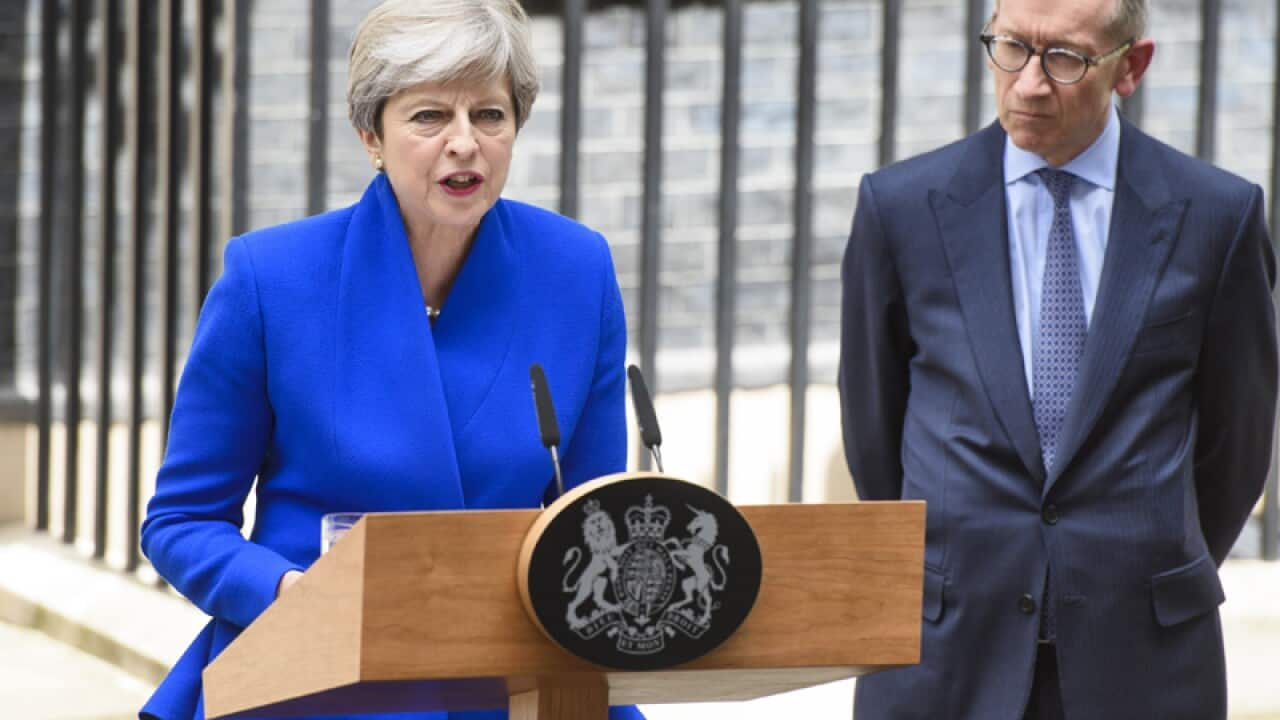British Prime Minister Theresa May says she will lead a minority government backed by a small Northern Irish party after she lost an election gamble days before the start of talks on Britain's departure from the European Union.
May called the snap election confident her Conservative Party would increase its majority and strengthen her hand in the Brexit talks. Instead, Thursday's vote damaged her authority and made her negotiating position more vulnerable to criticism.
"I'm sorry for all those candidates and hard working party workers who weren't successful," May said on Friday after a surprise resurgence by the main opposition Labour Party under its left wing leader Jeremy Corbyn.
"As I reflect on the results I will reflect on what we need to do in the future to take the party forward."
With all 650 seats declared, the Conservatives had won 318 seats, the Labour Party had 262 seats, followed by the pro-independence Scottish National Party on 34.
May now risks more opposition to her Brexit plans from inside and outside her party, though a party source said leading the Conservatives was seen as too much of a poisoned chalice for her to face an immediate challenge.
"She's staying, for now," the source told Reuters.
After noon, May was driven from her official Downing Street residence to Buckingham Palace to ask Queen Elizabeth for permission to form a government - a formality under the British system.
Her office said later that the key finance, foreign, Brexit, interior and defence ministers would remain unchanged. Further announcements were expected on Saturday.
The socially conservative, pro-Brexit Democratic Unionist Party's 10 seats give the right-wing Conservatives a fragile but workable majority, which May said would allow her to negotiate a successful exit from the EU.
"Our two parties have enjoyed a strong relationship over many years and this gives me the confidence to believe that we will be able to work together in the interests of the whole United Kingdom," May said.
The pound hit an eight-week low against the dollar and its lowest levels in seven months versus the euro before recovering slightly after May said she would form a government backed by her "friends" in the DUP.
DUP leader Arlene Foster's initial comments were non-committal: "The prime minister has spoken with me this morning and we will enter discussions with the Conservatives to explore how it may be possible to bring stability to our nation at this time of great challenge."
It was not immediately clear what the DUP's demands might be and one DUP lawmaker suggested support might come vote by vote.
May said Brexit talks would begin on June 19 as scheduled, the same day the British parliament is due to reconvene. But the election result meant it was unclear whether her plan to take Britain out of the bloc's single market and customs union could still be pursued.
EU leaders expressed concern that May's loss of her majority would raise the risk of negotiations failing, resulting in a legal limbo for people and business.
"Do your best to avoid a 'no deal' as result of 'no negotiations'," Donald Tusk, leader of the EU's ruling council, wrote in a tweet.

